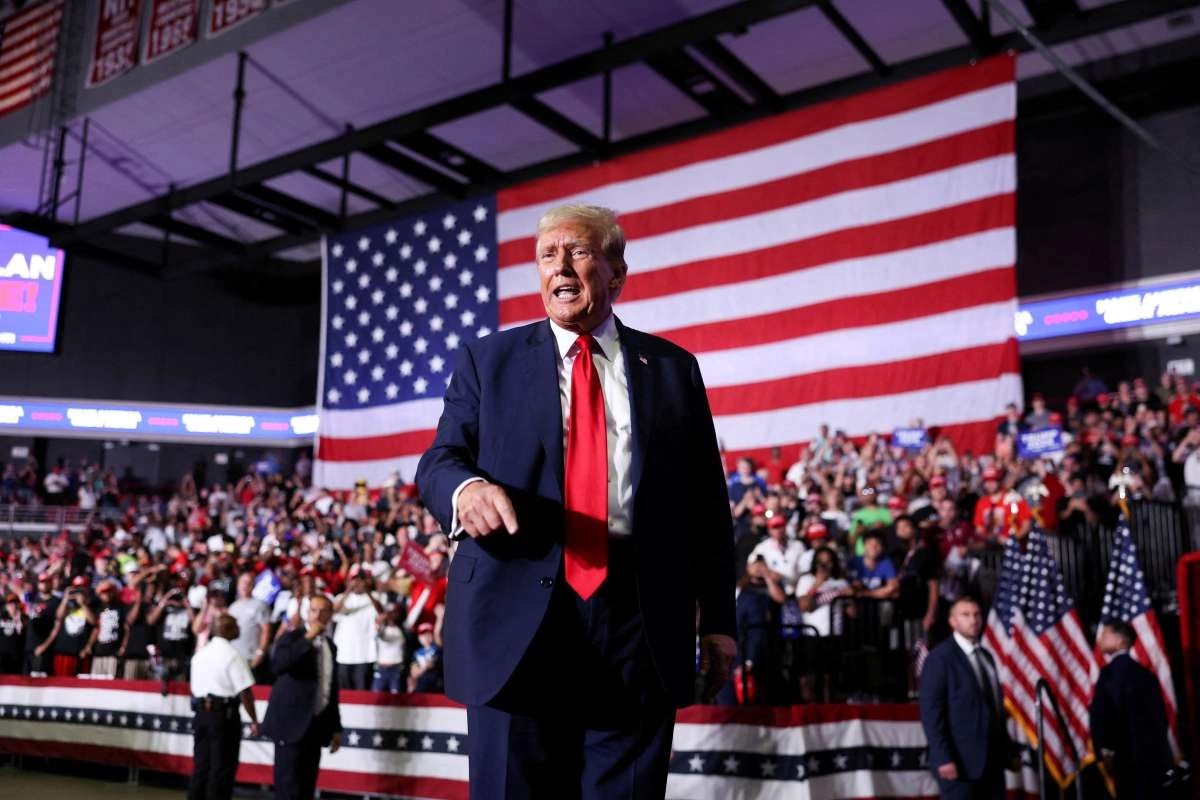
Under Trump’s administration, U.S.-Iran relations deteriorated dramatically. His withdrawal from the Joint Comprehensive Plan of Action (JCPOA) in 2018 marked the beginning of a campaign aimed at crippling the Iranian economy through comprehensive sanctions.
Photo: Reuters
News.Az has published an article entitled “Trump’s comeback: What awaits Iran and its allies in the near future.” The Caspian Post presents the article.
In the context of ongoing tensions between Washington and Tehran, the possibility of Donald Trump returning to the White House has sparked significant interest in Iran's foreign policy stance. The Iranian elite, policymakers, and the general public closely monitor U.S. political developments, as the return of Trump could signal a revival of the aggressive "maximum pressure" campaign that deeply affected Iran during his first term.
Under Trump’s administration, U.S.-Iran relations deteriorated dramatically. His withdrawal from the Joint Comprehensive Plan of Action (JCPOA) in 2018 marked the beginning of a campaign aimed at crippling the Iranian economy through comprehensive sanctions. These sanctions targeted Iran's oil exports, financial transactions, and key sectors, cutting the country off from global markets. The subsequent impact on the Iranian economy was profound.
For many Iranians, Trump’s policies are associated with hardship and instability. During his first term, Iran's oil exports, the backbone of its economy, plummeted from approximately 4 million barrels per day to as low as 700,000 barrels per day. The sanctions imposed by Trump’s administration were among the most severe in modern history, leaving Iran with limited access to global financial systems.
Although exceptions were made for some countries to continue purchasing Iranian oil temporarily, the overall economic impact was devastating. Inflation soared, the currency devalued significantly, and public discontent grew. Iranian officials and the public alike viewed Trump’s policies as an attempt to coerce Tehran into submission. This period has not been forgotten, and the prospect of Trump returning to power evokes considerable apprehension.
If Trump were to resume his policy of "maximum pressure," Iran appears determined to resist. However, the assassination of General Qassem Soleimani in 2020 remains a painful reminder of the risks associated with heightened U.S. hostility. Soleimani, a key figure in shaping Iran's regional strategy, was killed in a U.S. drone strike under Trump’s orders. This event significantly strained U.S.-Iran relations, deepening mistrust and fueling anti-American sentiment in Iran.
Tehran has since bolstered its preparedness for potential escalations. The Iranian government has strengthened ties with regional allies, including Hezbollah, which continues to play a pivotal role in Iran’s strategy of projecting power in the Middle East. Iranian-backed groups have also expanded their influence in countries like Iraq, Syria, and Yemen.
Furthermore, Iran’s leaders perceive Trump's potential return as a continuation of policies aimed not just at economic destabilization but also at undermining Iran's sovereignty. While acknowledging the possibility of tougher times ahead, Iran has sought to fortify its economy by fostering regional partnerships and diversifying trade with non-Western allies such as China and Russia.
Despite the hardships imposed by sanctions, Iran shows no signs of softening its stance toward the United States. Over the past decade, Tehran has remained committed to supporting its regional allies, particularly groups opposing Israel. For instance, Iran played a critical role in the events surrounding the October 7 attack, followed by Hezbollah's increasing activity in the region. These developments underscore Tehran’s resolve to maintain its influence in the face of external pressure.
Iranian policymakers view U.S. Republicans, particularly Trump, as adversaries unwilling to negotiate in good faith. Consequently, Tehran is unlikely to seek rapprochement if Trump returns to the White House. Instead, it may double down on its strategy of resistance, focusing on enhancing its military capabilities and deepening its ties with nations opposing Western hegemony.
A key concern for Tehran is the U.S. approach to the Israeli-Palestinan conflict . During Trump’s first term, his administration took bold steps in favor of Israel, such as recognizing Jerusalem as Israel's capital and relocating the U.S. embassy there. These actions alienated not only Palestinians but also much of the Arab and Muslim world.
Iran views these policies as reflective of broader Western bias and a disregard for Palestinian rights. In Tehran's view, a second Trump term could further embolden Israel, exacerbating tensions in the region. For Iran, this presents both challenges and opportunities. On one hand, it may lead to increased pressure on Iranian proxies in the region; on the other, it could provide Tehran with additional leverage to rally support among Arab and Muslim nations against perceived U.S.-Israeli aggression.
The likelihood of Trump adopting a more conciliatory tone toward Iran appears slim. If his policies during his first term are any indication, Tehran expects a continuation of aggressive rhetoric and actions. In response, Iran is preparing for an era of heightened confrontation, focusing on economic resilience and strategic alliances.
For the broader international community, the question remains whether the U.S. and Iran can avoid a repeat of the confrontations that marked the Trump era. While diplomacy remains a distant prospect, the stakes for regional stability and global
security have never been higher.
In the event of Trump’s return, the geopolitical landscape of the Middle East could face significant shifts, with Iran poised to play a central role in resisting U.S. influence. For now, Tehran remains cautious yet resolute, bracing itself for what many see as an inevitable clash of ideologies and interests.
Share on social media